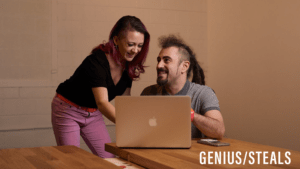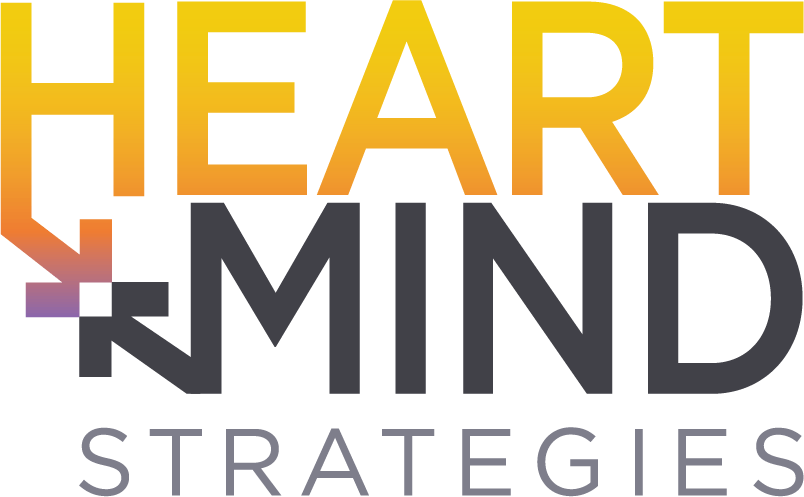
Our latest Roundtable session challenged us in a fun and interactive way to think differently about creativity in times of crisis, like a global pandemic, economic uncertainty, and social divides. Instead of our usual panel discussion with guest speakers, we were privileged to have a one-hour interactive workshop with Rosie and Faris Yakob of GeniusSteals.
More than 8 years ago, Faris proposed far more than marriage to Rosie; he included an invitation to quit their high profile ad industry jobs and become nomadic consultants discovering new parts of the world every 6 months together. For 415 weeks, they have done just that across 41 countries. This past year the pandemic forced them to embrace a new reality they had resisted – moving from a public-speaking, event-driven business model to an online model without losing the interactivity and powerful engagement.
During their time with us, Faris and Rosie’s games, stories, and inspiration focused on five areas that will boost creativity in times of crisis, or anytime. Here are the key takeaways:
(1) Creativity is Security
- Creativity is a muscle to be flexed, it is not something you either have or don’t have, it is something you build over time.
- Creativity is also job security. Businesses will continue to automate everything they can. Creativity cannot be automated, so it is quite a useful skill for the future. Seek ways to develop your creative muscles.
(2) Non-Obvious Problem Solving
- Creativity is non-obvious problem solving. After the obvious ideas are given then creativity can start. Brainstorming can be the quickest way to get all of the obvious bad ideas out first so you can get to creative ideas.
- Commercial creativity is the practice of finding non-obvious ways for our clients to achieve growth.
- Reframing the situation invites creativity – allowing us to make different connections in our minds. When someone thinks outside the box it gives permission to others to do so as well. It just takes one person to turn the collaboration in a new direction.
- Challenge convention… in every aspect of life.
(3) You Are the Ideas You Eat
- Expand your adjacent possible. You are the ideas you eat, so expose yourself to more and more diverse experiences and ideas.
- We all have different biases that we’ve grown up with from our life experiences, creativity is different in different cultures. It can spawn so many different ideas in different minds.
- No-one is smarter than everyone. All of the single-minded problems have already been solved. Sometimes that looks like giving yourself time and space to not be creative. Being kind/compassionate with yourself, or self care, is also key.
- Prep work may be required in advance to help inject the “left turn”. It is like “Inception” – what question can I ask to get people to respond in a different, brave, or more courageous way?
(4) Psychological Safety + Constraints Matter
- Psychological safety is a key component of creative environments.
- In a time of crisis we have to work a littler harder and do more to create those moments of psychological safety. We need to be granted permission to be vulnerable, to not take ourselves too seriously, and to freely associate as ideas come up.
- Build the creative muscle and the toolbox so when the hard things happen you can call on those existing tools.
- Crises almost always force change, which is something that we as humans naturally resist. We need to be willing to view a crisis as an opportunity that can open new ways of seeing the world.
- Rules make games more fun, constraints make creativity possible. Like poetry produces novel bits of language through constraint of rhyming, etc., constraints on your process forces you to get creative.
(5) Live… Life!
- Don’t get so passionate about your product or your business or even your creative idea that you forget that your most important project is you.
- Your product is not your life’s work. Make your life your life’s work.
- Flexing creative muscles will bring you great joy in all you do.
For even more creative insights and outside-the-box thinking, sign up for Rosie and Faris’ weekly email newsletter “Strands of Genius” on their website.
